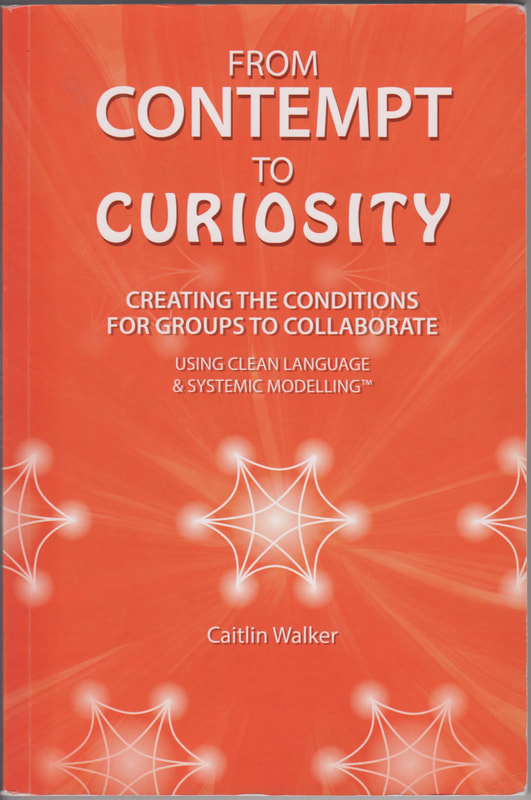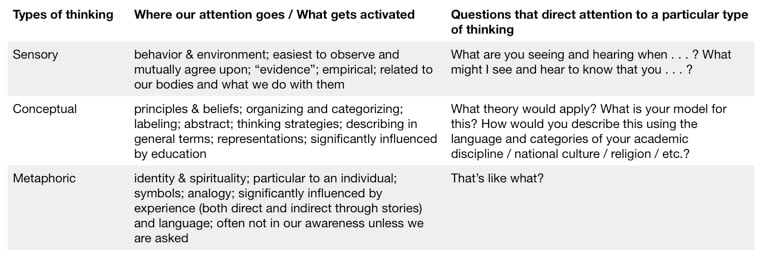My business card for Third Space Tokyo identifies me as our "Chief English Co-Creator" and co-creation is our foundational principle. Like Lorrae van Kerkhoff, we have been thinking about how best to "operationalize" this trendy term for creating value together. I'm starting to realize that Caitlin Walker's Systemic Modelling can be thought of as a set of routines and habits that make meaningful co-creation doable.
With so much interest globally in collaboration and so many methods for fostering it available, what is different and valuable about Systemic Modelling? As I understand it, the biggest difference is the emphasis on moving fluidly and with awareness among three different types of thinking: sensory, conceptual, and metaphoric. All three types are welcome, and group members learn to help one another express their thinking in each of the three ways. Because emphasis on sensory and conceptual are more common in school and business, the inclusion of metaphoric and the use of Clean Language questions as a technique stands out. In fact, Systemic Modelling is often described simply as an application of Clean Language to groups. Based on the limited amount of training that I have had so far, I think of it more as a package of models, routines, and tools that helps people to direct their attention and move with awareness from one type of thinking to another. Including all three types gives the group more information than it would have than with one or two types alone and maximizes the group's potential to identify and reach desired outcomes.
I've made myself the following chart based on this article by James Lawley (experts: yes, I know that this is about Symbolic Modelling), other reading, and all that I've experienced so far in Clean for Teams, Drama Free, and online systemic modelling practice groups.
I've made myself the following chart based on this article by James Lawley (experts: yes, I know that this is about Symbolic Modelling), other reading, and all that I've experienced so far in Clean for Teams, Drama Free, and online systemic modelling practice groups.
Because most of us have only worked with "metaphor" in a language arts class, the experience of asking and being asked Clean Language questions can give rise to a wide range of emotions. Anyone can quickly learn and ask the questions, but being able to use them with intent as a tool requires many hours of practice. For this reason, at first, I thought that I should set out to learn "Clean Language." The more that I learn, however, the more that I am interested in Caitlin's Systemic Modelling and in being able to teach people explicitly about moving with awareness and intent among sensory, conceptual, and metaphoric thinking. Part of this will, of course, involve developing facility with Clean Language questions, but when I tell myself what I am trying to learn, it will be "Systemic Modelling," not "Clean Language."
In November, I will attend a next level of Systemic Modelling training in Washington DC. I will need groups to practice with in order to improve as a facilitator, and so soon I will be offering free and low-cost sessions. Eventually, my work and that of Third Space Tokyo may move away from directly co-creating content and events with clients and toward being a facilitator for groups seeking to operate as a co-creative team. I look forward to sharing more about Systemic Modelling as I learn, and if you are interested already, please get in touch for a virtual or in-person chat.
- Lisa


 RSS Feed
RSS Feed